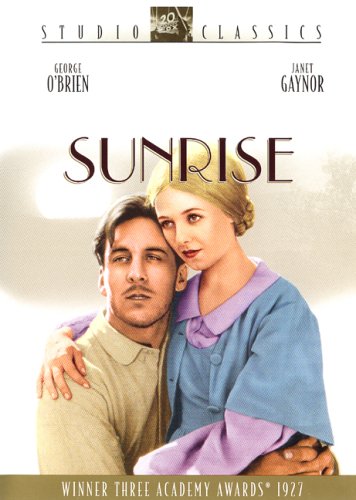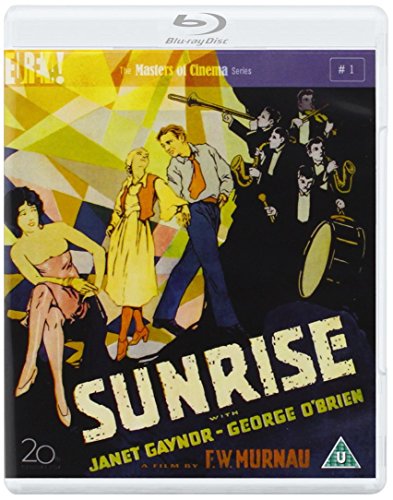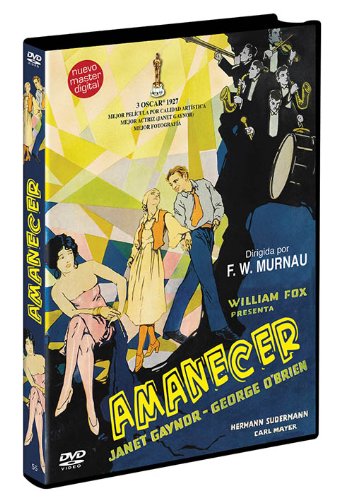Directed by F.W. Murnau, Sunrise: A Song of Two Humans is widely regarded as one of the greatest films of the silent era—and of all time. Released by Fox Film Corporation, it was Murnau’s first American film after his success in Germany with Nosferatu and The Last Laugh. Sunrise is a visually stunning, emotionally resonant tale of love, temptation, and redemption, told with groundbreaking cinematic technique.
Plot Summary
A nameless man (George O’Brien) lives a quiet rural life with his wife (Janet Gaynor) and child. But when a seductive woman from the city tempts him to murder his wife and run away, he nearly succumbs to darkness. At the last moment, he cannot go through with it, and the couple embarks on a journey to the city—where they rediscover their love amid bustling streets, carnivals, and quiet moments of grace.
The film’s structure is simple but profound: a descent into temptation, a rebirth of love, and a final test of fate as a storm threatens to tear them apart once more.
Cast Highlights
- George O’Brien as The Man
- Janet Gaynor as The Wife
- Margaret Livingston as The Woman from the City
Gaynor’s performance earned her the first-ever Academy Award for Best Actress, shared with her roles in Seventh Heaven and Street Angel.
Cinematic Innovations
- Murnau used complex tracking shots, double exposures, and expressionist lighting to create a dreamlike atmosphere
- The film pioneered the use of “Fox Movietone” sound-on-film technology, featuring synchronized music and sound effects, though it remains a silent film with no spoken dialogue
- The city scenes were filmed on massive studio sets, blending realism with stylized fantasy
- The film’s visual storytelling influenced generations of directors, from Hitchcock to Malick
Awards & Legacy
- Won Academy Award for Unique and Artistic Production at the first Oscars in 1929—a category created specifically for it
- Selected for preservation in the U.S. National Film Registry
- Frequently appears on critics’ lists of the greatest films ever made, including Sight & Sound and AFI rankings
- Celebrated for its universal themes, emotional depth, and technical brilliance
Why It Endures
Sunrise is more than a film—it’s a visual poem. It captures the fragility of human relationships, the tension between rural simplicity and urban temptation, and the redemptive power of love. Murnau’s artistry turns a simple story into a transcendent experience, making Sunrise a cornerstone of cinematic history.



Comments are closed, but trackbacks and pingbacks are open.